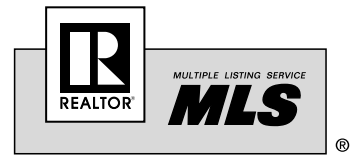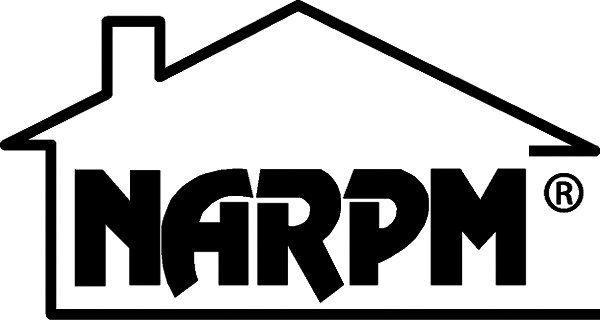Should You Create an LLC for Your Texas Rental Property? Tax Benefits And Other Considerations

If you own a rental property in Texas, you might be considering creating a Limited Liability Company (LLC) to manage it. An LLC can offer several benefits, such as personal asset protection, tax advantages, and easier management. Operating as an LLC can increase your credibility and flexibility when it comes to obtaining financing and other business-related services.
However, creating an LLC involves costs and administrative requirements, and it's important to consult with a legal or financial professional to determine if it's the best option for your situation.
The pros and cons of creating an LLC for a rental property should be carefully evaluated based on your individual circumstances and goals. In this article, we'll explore the benefits of creating an LLC for a rental property in Texas and what you need to know to get started.

Is Creating an LLC for Rental Property Beneficial for Property Owners?
An LLC for rental property is a legal entity that separates the owners' personal assets from the rental property. The LLC owns the property, and the owners of the LLC are not personally responsible for any debts or legal claims related to the property.
However, you might be wondering if this is truly beneficial or if it’s more trouble than it’s worth. Let’s look at a few benefits of creating an LLC for rental properties.
Benefits of Creating an LLC for Your Rental Property
If you're a rental property owner, creating a
Limited Liability Company (LLC) can offer various benefits. In this section, we'll explore the advantages of creating an LLC for your rental property, including personal asset protection, tax advantages, and easier management.
- Asset Protection:
An LLC creates a separate legal entity for the rental property, shielding the owners' personal assets from potential lawsuits or legal claims related to the property.
- Professional Appearances:
Creating an LLC can help give your rental property a more professional image, which may attract higher-quality tenants and increase rental income.
- Flexibility:
LLCs offer flexibility in terms of ownership structure, which can make it easier to transfer ownership, raise capital, or add or remove members.
- Separate Expense Logs:
Separate bank accounts are required for LLCs to maintain the protections offered by the LLC. It is also beneficial for tax purposes, as it makes tracking deductions easier.
- Anonymity:
Operating a rental property without an LLC can expose the owner's personal information to tenants. With an LLC, the owner can maintain a degree of anonymity by listing the property under the LLC's ownership, which is invaluable for those who want to protect their personal information.
- Tax Advantages: LLCs offer pass-through taxation, depreciation deductions, and deductible expenses, which can help reduce overall tax liability for the rental property.
The tax advantages associated with opening an LLC can be one of its most attractive features, so let’s look at some of the tax benefits in more detail.
Tax Benefits of Creating an LLC for Rental Property Owners in Texas
There are several potential tax benefits of creating an LLC for a rental property in Texas. It's important to note that these advantages can vary depending on a variety of factors, including the specific ownership structure, the type of rental property, and the owner's individual tax situation.
An accountant or tax professional who is familiar with Texas rental property tax laws can provide more information and guidance on how to maximize tax benefits.
- Pass-through Taxation:
LLCs are typically treated as pass-through entities for tax purposes, which means that the
profits and losses from the rental property are passed through to the owners' personal tax returns. This can result in lower overall taxes than if the rental property were owned directly by an individual.
- Depreciation:
Rental property owners can take advantage of depreciation deductions on their tax returns. Depreciation allows owners to deduct a portion of the cost of the property over time, which can help to offset rental income and reduce overall tax liability.
- Deductible Expenses:
LLC owners can deduct a wide range of expenses related to their rental property, including mortgage interest, property taxes, repairs and maintenance, insurance premiums, and
property management fees.
- Self-employment Tax Savings: LLC owners who actively participate in the management of their rental property can potentially reduce their self-employment tax liability by electing to be taxed as an S corporation.
- Estate Planning Benefits: Creating an LLC for a rental property can also provide estate planning benefits, such as allowing owners to transfer ownership shares to family members or other beneficiaries without triggering a taxable event.

The Drawbacks of Creating an LLC
While there are several advantages to creating an LLC for a rental property, there are also some drawbacks to consider. In this section, we'll examine some of the potential downsides of operating as an LLC, including higher administrative and filing costs, potential difficulty in obtaining financing, and increased record-keeping requirements. It's important to weigh these factors against the benefits of an LLC to determine if it's the right choice for your rental property.
- Financing Problems: Transferring or purchasing a rental property in the name of an LLC can pose financing problems, as lenders and financing companies prefer having someone personally responsible for repaying a property loan. LLC's asset protection can make it challenging for lenders to seize the collateral if the loan defaults.
- Cost: Starting an LLC involves filing paperwork and paying fees, which can be expensive. There are also ongoing costs associated with maintaining the LLC, such as annual fees and taxes, which can add up over time.
- Complexity: LLCs involve more paperwork and administrative tasks than other forms of property ownership. Owners may need to file regular reports and maintain detailed records, which can be time-consuming and may require specialized knowledge.
- Limited Personal Liability: While an LLC can protect the personal assets of the owners, there are still some situations in which they may be held liable for the rental property. For example, if they engage in illegal or negligent behavior related to the property, they may not be shielded from personal liability.
- Limited Transferability: The ownership structure of an LLC can make it more difficult to transfer ownership or sell the property. Potential buyers or investors may be hesitant to become members of the LLC, which could limit the property's resale value.
Additional Laws and Taxes Applicable on LLC-Owned Properties
As with any business operating as an LLC in Texas, you must follow the state's requirements for naming your LLC, filing formation documents, designating a registered agent, paying taxes, and maintaining compliance with state and federal laws and regulations.
However, there may be additional considerations specific to managing a rental property, such as obtaining the necessary licenses and permits, complying with local zoning and housing codes, and ensuring that your LLC's insurance coverage is adequate for the property.
It's important for LLC owners to understand these laws and taxes applicable to their rental properties, and to work with experienced professionals such as attorneys and accountants to ensure compliance and minimize risks.
- State Franchise Tax: Texas LLCs must pay a state franchise tax, which is based on the company's gross receipts or net income. The rate is currently 0.375% for most entities but can be higher for some industries.
- Texas Uniform Condominium Act: If the rental property is a condominium, it is subject to the Texas Uniform Condominium Act, which sets out various rules and regulations related to condo ownership, management, and governance.
- Landlord-Tenant Laws: LLC-owned rental properties must comply with Texas landlord-tenant laws, which cover topics such as lease agreements, security deposits, eviction procedures, and more.
- Fair Housing Act: The Fair Housing Act prohibits discrimination in housing based on factors such as race, color, religion, national origin, sex, familial status, and disability. LLC-owned rental properties must comply with these regulations to avoid legal liability.

Should You Create an LLC for Your Rental Property?
Creating an LLC for a rental property in Texas can offer several benefits as well as potential drawbacks as discussed above. If you're considering creating an LLC for your rental property in Texas, it's important to weigh the pros and cons carefully. Some factors to consider include:
- Your long-term goals for the property
- Your overall financial situation and tax obligations
- Your willingness and ability to manage the administrative tasks associated with LLC ownership
- The specific laws and regulations that apply to your rental property and LLC in Texas

How to Create an LLC for Rental Property in Texas
The process of creating an LLC for a rental property in Texas is generally similar to other states, but there may be some differences in the specific requirements and regulations that apply. Here are some general guidelines that may help:
1.Choose a name for your LLC: Your LLC name must comply with Texas requirements, which include including the phrase "limited liability company," "limited company," or an abbreviation of one of these phrases, and ensuring that the name is not already in use.
2. File a Certificate of Formation: Submit a Certificate of Formation to the Texas Secretary of State's office, which should include basic information about your LLC, such as its name, purpose, and the names of members or managers.
3. Designate a registered agent: Select a registered agent, who is responsible for accepting legal notices and other important documents on behalf of the LLC. The agent must have a physical address in Texas.
4. Draft an operating agreement: Although not legally required, an operating agreement outlines the rights and responsibilities of members and managers, which can help avoid disputes down the line.
5. Obtain necessary licenses and permits: Depending on your location and the type of property you're renting, you may need to obtain certain licenses or permits. Consult with your local government or a legal professional to ensure compliance.
6. Comply with tax obligations: As an LLC, you'll need to obtain an Employer Identification Number (EIN) from the IRS and pay state and federal taxes.
By following these steps and consulting with legal or financial professionals when necessary, you can create an LLC for your rental property in Texas and take advantage of the benefits that come with it, such as personal asset protection and
easier management.
It's important to note that LLC formation and management laws can vary from state to state, so it's always a good idea to consult with an attorney or accountant who is familiar with the specific requirements and regulations in the state you’re in.
Creating an LLC for your rental property in Texas can provide a variety of benefits, including personal asset protection, tax advantages, and easier management. However, it's important to carefully consider the potential drawbacks and consult with legal and financial professionals to ensure compliance with state and federal laws and regulations.
Additionally, involving a
property manager in the process of buying and managing a rental property can help streamline the process and maximize your investment's potential. If you're considering purchasing a rental property or already own one, take the necessary steps to protect yourself and your investment by considering an LLC and seeking guidance from a trusted property management professional at
Bluebonnet Property Management.







